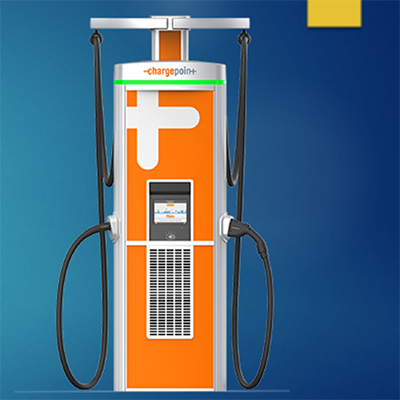Campus News
UC Santa Cruz sets fossil-free date
The University of California, Santa Cruz has announced it will reduce fossil fuel emission by 90% by 2045. The date was set based on recommendations from the Decarbonization and Electrification (D&E) team.

The University of California, Santa Cruz has announced it will reduce fossil fuel emission by 90% by 2045. The date was set based on recommendations from the Decarbonization and Electrification (D&E) team.
“The decarbonization and electrification of our campus is a priority and vital to not only UC Santa Cruz, but to the entire University of California system,” Campus Provost and Executive Vice Chancellor Lori Kletzer said at the Decarbonization & Electifiction Town Hall gathering on February 10. “We are fortunate that our campus communities – made up of students, faculty, and staff – are so committed to the work of sustainability and transformation.”
The push to decarbonize all University of California (UC) campuses is the University’s biggest challenge to achieving the climate action goals and maintaining UC’s status as a leader in climate action.
In 2024, UC took bold action when it moved away from “Climate Neutrality by 2025” to the goal of “fossil-free.” After years of internal research into the efficacy of carbon markets and with pressure from local climate advocates, it revised its Sustainable Practices Policy to reflect this shift, moving away from the purchase of carbon offsets and towards cutting onsite emissions. With this change came a requirement to determine a target date of reducing greenhouse gases by 90%.
“It’s been exciting to identify potentially millions of dollars in incentives and grants available through the Inflation Reduction Act, but we are not currently seeing the magnitude of funding opportunities that we need to advance this transition as soon as we would like,” said Kletzer.
After analyzing the current financial constraints and reviewing additional campus priorities, including additional housing, seismic retrofits, and deferred maintenance needs, it was determined that 2045 was the most realistic date.
Interim targets include a 5% reduction by 2030, 16% by 2035, and 85% by 2040. The Decarbonization & Electrification Predesign Report outlines the “nodal” approach UC Santa Cruz will take to decarbonizing college pairs one at a time while working to sunset the university’s cogeneration power plant by 2040.
At the town hall gathering, Decarbonization Infrastructure Program Manager Phil Boutelle shared an update on the campus’s electrification transition, Assistant Director of Sustainability for Operational & Strategic Initiatives Ellen Vaughan discussed funding opportunities and the constraints the campus faces, Carbon Fund Student Coordinators Amy Fuller and Halle Bohlig shared information on the Carbon Fund D&E projects, and Assistant Vice Chancellor for Strategic Initiatives & Sustainability Elida Erickson provided an update on campus sustainability.
“UCSC has a big job ahead in order to reach the 2045 fossil-free date,” AVC for Strategic Initiatives & Sustainability Elida Erickson said. “We will need to think outside of the box to identify creative funding sources, while also ensuring we stay in alignment with organizational values and keep up with much needed infrastructure upgrades. It’s not an easy challenge, and I’m pleased that leadership continues to support a fossil free goal as a campus priority.”
Over the last two years, many accomplishments have been made including revising the Sustainability & Climate Action Plan, completing the decarbonization pre-design report, evaluating financial opportunities to implement this effort, and shifting many natural gas (methane) purchases over to electric substitutes.
The campus has also pivoted from utilizing natural gas to heat new construction and large renovations to utilizing carbon-free electricity to power buildings. The university gets carbon-free electricity through the UC’s Clean Power Program, which has achieved an annual third-party verified emission intensity of zero pounds of CO2 equivalent per megawatt hour since 2019. Learn more about the program’s newest wind development.
For more information on the campus plan and UCSC’s fossil-free work, visit the Decarbonization and Electrification Planning website. If you have ideas, questions, or comments about UCSC’s D&E effort, please let us know through this anonymous form.
If you are faculty or staff and would like to get more involved in climate action and environmental awareness, please consider getting Green Office Certified, Green Lab Certified, or engaging with UCSC’s Climate Action Network.
If you are a student, check out this map of living lab engagement opportunities and learn more about the Carbon Fund, Enviroslug and the Sunrise Santa Cruz club.